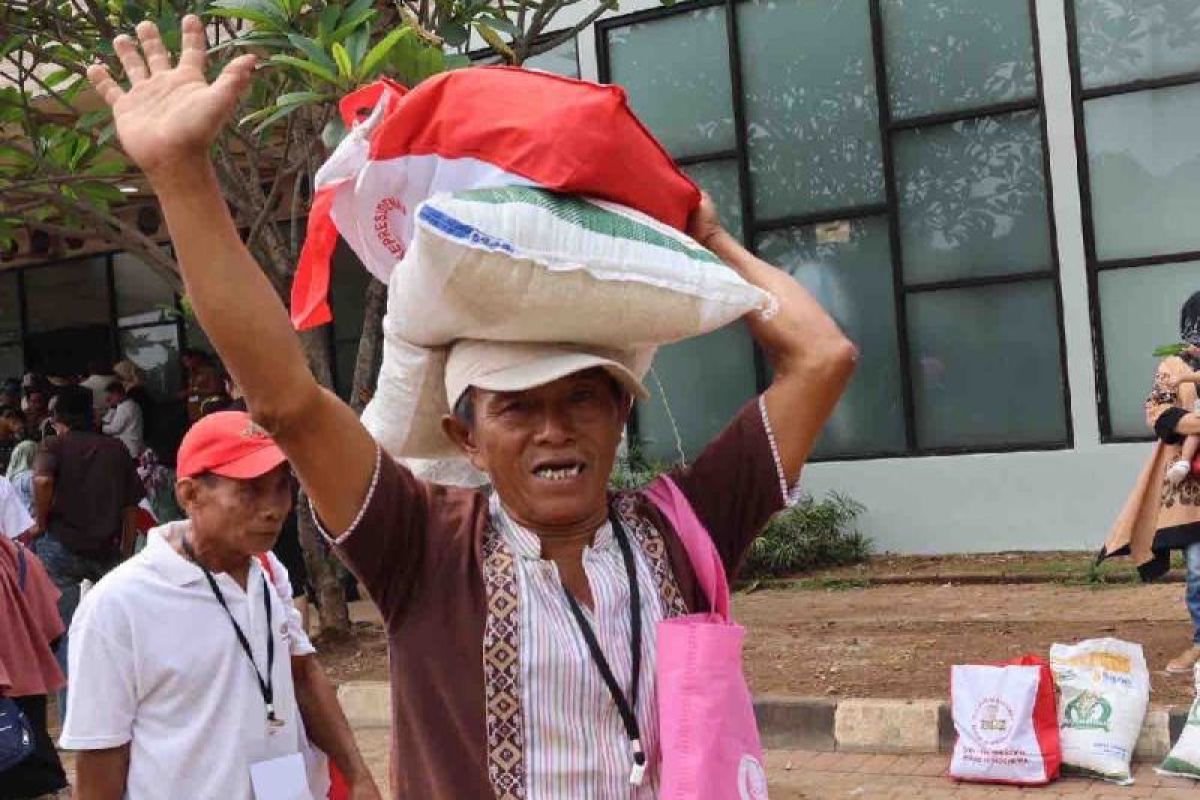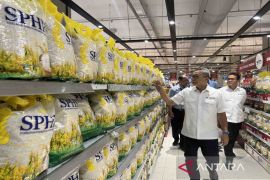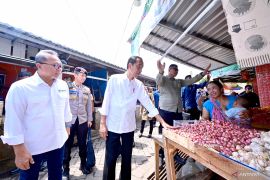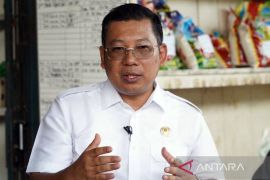For Jamaludin, 42, a casual laborer from Bekasi district, West Java, the free aid of 10 kilograms of rice is a reason to be grateful. The aid can help relieve his economic burden and allow him to reallocate his household budget to obtain other basic necessities.
For Kasno, another casual worker hailing from South Tangerang city, Banten, the aid offers similar relief. The 63-year-old is all praise for the government for providing his family with the food aid.
As a casual worker without a steady income, Kasno considers every grain of rice highly valuable for his family.
Both Jamaludin and Kasno said they hope that the government will extend the distribution period of the food aid so that the people can obtain staple goods at more affordable prices.
SPHP rice
The government, through ministries and agencies responsible for food-related matters, has been monitoring the trend of rice prices and stocks in markets. Such a measure is required for formulating policies instrumental for dealing with soaring prices and declining supplies.
While the world is experiencing the adverse impacts of climate change, which has triggered a decline in agricultural output, including rice, the Indonesian government has been exerting efforts to ensure no one suffers from food shortage in the nation.
It must be noted that the impacts of climate change have not only hit Indonesia hard, but affected almost all countries around the globe. Climate change has affected agricultural activities, resulting in declining outputs, which have, in turn, pushed up prices at the global level.
In response, the central government has taken swift measures, including directing state-run logistics company Bulog to intensify the distribution of the government rice reserves under the Food Supply and Price Stabilization (SPHP) Program.
The reserve rice is being sold in five-kilogram packages, with the highest retail price set at Rp10,900 (US$0.69) per kilogram.
According to Bulog president director Bayu Krisnamurthi, the SPHP Program is meant to combat speculators manipulating the price of rice in markets.
He said that speculators have been trying to take advantage of the current discrepancy between rice supply and demand by inflating prices for their own benefit.
To stem this practice and tame prices, Bulog has been delivering stocks of SPHP rice to the Cipinang Central Market in Jakarta and other markets, both modern and traditional.
Krisnamurthi cited data as of February 27, 2024, which showed that Bulog has managed to distribute around 330 thousand tons of SPHP rice during the January–February period, adding that the government is aiming to distribute a total of 1.2 million tons of rice this year.
To ensure the effectiveness of the program, Bulog has lifted the provision regarding the maximum quantity of rice a merchant can procure. Earlier, merchants in modern and traditional markets could only purchase a maximum of two tons of SPHP rice.
The move is expected to ensure that sufficient stocks of rice circulate in markets and help maintain price stability. The policy will be valid until March, coinciding with this year's Ramadan fasting month.
Head of the National Food Agency (Bapans), Arief Prasetyo Adi, said that to prevent hoarding, the government has decided to limit the maximum purchase quantity of SPHP rice to 10 kilograms for people at the consumer level.
The restriction, which took effect in October 2023, aims to prompt people to shop wisely and not hoard rice stocks in anticipation of scarcity.
With the prices of premium-grade rice continuing to rise, Trade Minister Zulkifli Hasan has invited people to opt for rice offered under the SPHP Program. That way, the public can participate in efforts to keep the prices of premium rice from soaring even higher, he said.
"SPHP rice is a solution to the prices of premium-grade rice that have exceeded the determined highest retail price," he added, noting that the taste and quality of SPHP rice are comparable to premium grade rice.
Ensuring food availability
The SPHP Program is not the government's sole solution to rice worries. The government has been massively distributing free rice to those lacking economic capacity to ensure that they have access to adequate stocks of food.
Under the food aid program, the government will continue to hand out 10 kilograms of free rice to each beneficiary every month until June 2024. The program is expected to help maintain food availability and help those from the lower economic class sustain their lives amid the current trying period.
The food assistance is targeted at a total of 22 million beneficiary families registered by the Coordinating Ministry for Human Development and Cultural Affairs in its Targets for the Acceleration of the Alleviation of Extreme Poverty (P3KE) data.
By distributing rice aid, the government can prove that it is siding with the people while controlling inflation. The 10 kilograms of free rice can also help Jamaludin, Kasno, and millions of underprivileged citizens greet the days ahead with a measure of hope.
Related news: President Jokowi distributes rice aid to counter rising prices
Related news: Govt committed to continuing rice aid distribution: minister
Related news: 185,000 tons of rice aid disbursed as of Feb: Bapanas
Translator: Muhammad H, Tegar Nurfitra
Editor: Azis Kurmala
Copyright © ANTARA 2024












